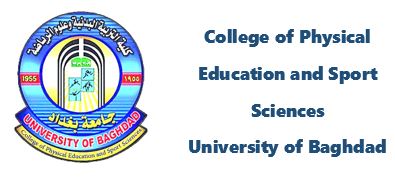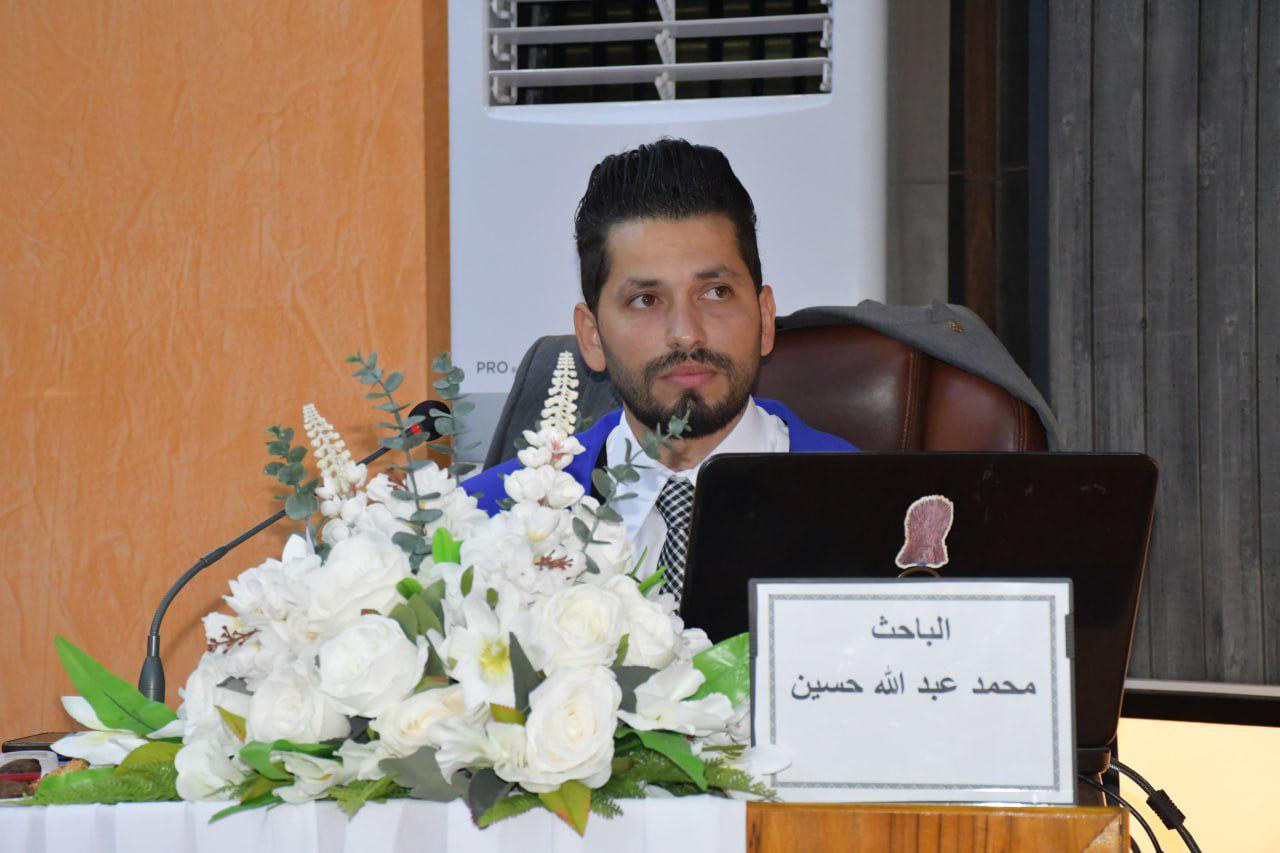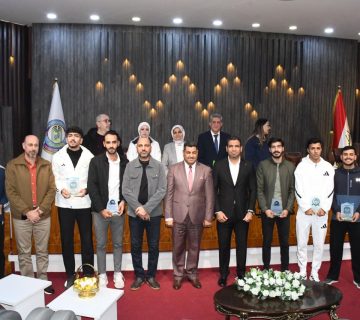A master’s thesis titled “A Designed Device for the Early Detection of Cervical Spine Damage Using Artificial Intelligence in Specialized Schools for Cubs” by the student Mohammed Abdullah Hussein was discussed at the College of Physical Education and Sport Sciences, University of Baghdad.
The examining committee consisted of:
•Prof. Dr. Hameed Abdulnabi Abdul Kadhim – Chair
•Prof. Dr. Ammar Hamza Hadi – Member
•Asst. Prof. Dr. Ahmed Mohammed Abdulkhaleq – Member
•Asst. Prof. Dr. Fatima Hameed Kazar – Member and Supervisor
•Dr. Laith Subaih Omran – Member and Supervisor
The study addresses the importance of early detection of cervical spine damage caused by various factors, including injuries from high-impact sports activities, sudden forceful twisting, or forward falls — all of which are common in youth athletics.
The researcher aimed to design a smart diagnostic device using artificial intelligence to detect early signs of cervical vertebrae injuries among young athletes and to identify statistical differences in injury patterns across different sports.
Findings revealed that the AI-powered device effectively identifies neck deviations in multiple directions. These deviations are often linked to cervical injuries associated with skillful and tactical performance, and they tend to go unnoticed due to the lack of regular medical assessments at this developmental stage. The results also showed a higher incidence of right-sided head tilt particularly among wrestling athletes, indicating a sport-specific risk.
This research supports the Sustainable Development Goals: Good Health and Well-being, Industry Innovation and Infrastructure, and Quality Education.









